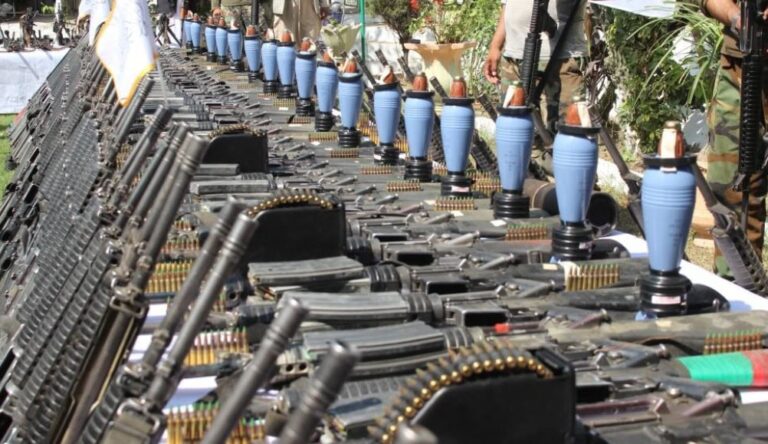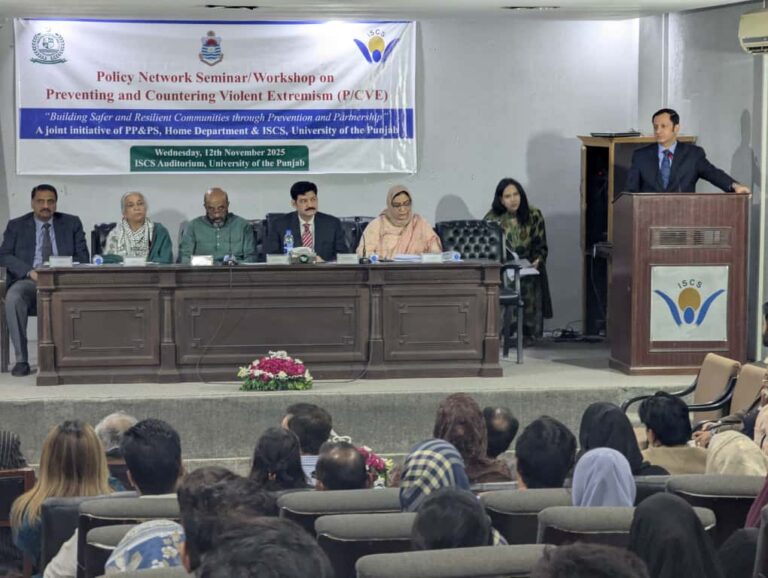
LAHORE: The Institute of Social and Cultural Studies (ISCS) at the University of the Punjab, in collaboration with the Punjab Probation and Parole Service (PP&PS) of the Home Department, Government of Punjab, organised a Policy Network Seminar and Workshop on “Preventing and Countering Violent Extremism (P/CVE): Best Practices” at the ISCS Auditorium on Wednesday.
The event brought together policymakers, academics, journalists and peace practitioners to exchange views on strategies for peacebuilding, rehabilitation and social resilience.
The proceedings began with the recitation from the Holy Quran by Ms Rubab Fatima, followed by the national anthem. In his opening remarks, Prof Dr Farhan Naveed Yousaf, Director ISCS, underscored the need for evidence-based academic engagement to support national efforts aimed at preventing violent extremism.
Punjab Probation and Parole Service Director General Muhammad Shahid Iqbal outlined the key objectives of Pakistan’s national P/CVE policy and stressed the importance of rehabilitation and reintegration measures for individuals affected by radicalisation.
Prof Syed Hussain Haider, Senior Legal Expert at the United Nations Office on Drugs and Crime (UNODC), provided an overview of international experiences in preventing extremism, highlighting their relevance to Pakistan’s social and institutional context.
Syed Ahmad Khawar Shehzad, Deputy Coordinating Officer at the Punjab Centre of Excellence on CVE, discussed the province’s counter-extremism strategy and the need for institutional collaboration and capacity building.
In another session, academician Shanti Kumar Hettiarachchi delivered a talk titled “Faith at the Crossroads: Religion’s Role in Countering Violent Extremism,” focusing on the importance of interfaith dialogue and religious inclusivity in peacebuilding.
Senior journalist Salman Abid emphasised the media’s role in shaping responsible narratives. At the same time, Diep Saeeda, Founding Director of the Centre for Peace and Secular Studies, called for stronger networks between civil society, academia and government to build community trust and social cohesion.
A panel discussion and interactive question-and-answer session, moderated by Ms Ayesha Allah Ditta, Assistant Director at PP&PS, encouraged participants to identify practical measures for cooperation in P/CVE initiatives.
In her concluding remarks, Prof Dr Iram Khalid, Dean of the Faculty of Behavioural and Social Sciences, commended the collaboration between ISCS and PP&PS, describing it as a model for evidence-based policymaking in countering violent extremism.
The seminar concluded with the presentation of shields, a group photograph and a networking tea.






